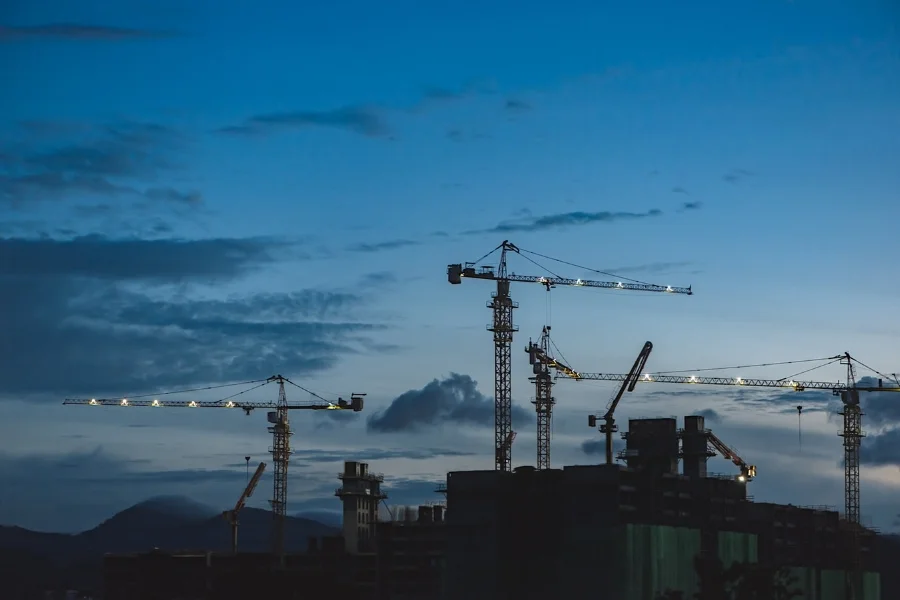4 "Dad" Questions to Ask Before Renting a Crane
Experience is the number one factor to consider when considering renting a crane service. The more a crane company has worked in a variety of industries (such as oil and gas, construction, utilities and demolition), the better.
After all, a crane is a massive piece of equipment that will make its way to a property or work site, and so builders and contractors renting it need to make a smart decision.
For Dads who are involved in managing commercial property or large-scale residential projects that require the use of a crane, here’s an overview how your builder or contractor goes about the process. The following are four questions pros usually ask before renting a crane.
1. Does the project need one?
Before renting a crane, contractors need to ask, does the project actually need one? Is it for a property improvement project, for business reasons or other reasons? There is a variety of projects where it is frequently suggested that specific equipment be brought in to make the job go as efficiently and as safely as possible.
For residential properties such as multi-level apartments, these projects may include large tree removal and maintenance, tower and concrete wall setting, second-floor additions, roofing and landscaping renovations.
For businesses, it can range from working on high-rise buildings to needing to move materials to and from ships and a whole array of scenarios in between.
However, it is essential to understand the project thoroughly before further research.
2. What type of crane does the project require?
Once it has been determined that a crane is, indeed, required, it is time to dig further into which type of crane is needed. By working with a crane rental company, homeowners and businesses alike will have access to a variety of sizes of cranes, providing a lot of flexibility within projects.
For example, self-erecting small site cranes are especially beneficial in building projects for private houses and small to medium size residential buildings that only need to employ them for a short period.
A top-slewing crane is more suitable for projects in urban areas, such as multi-storey apartment dwellings and commercial projects; while electric luffing cranes are ideal for congested construction sites.
No two jobs requiring cranes are alike especially when it comes to precision. The crane rental company can provide recommendations according to project specifications.
3. Is it more cost effective to rent or buy?
Contractors or builders who are looking for the most cost-effective plan regarding cranes make sure to consider the pros and cons of renting and buying one. There is no denying that cranes are costly to purchase, so this requires a lot of thought before making any decision.
When considering different factors, a contractor must weigh the fact that, if they purchase a crane, money will also need to be spent on storing the equipment during those times it's not in use. However, for those who are expecting to be utilizing this piece of equipment every day for the next 30 years, purchasing one will most likely be the more cost-effective solution.
On the other hand, for projects that will only require the use of the crane intermittently or for a short period of time, renting is a far more cost-effective option. Renting should be an attractive option for smaller companies that can't afford to buy a crane outright and, instead, can use an equipment rental service and get the job done.
An additional benefit of renting is that rental companies usually take care of the repair and maintenance of the equipment, removing the need for hiring firms to get someone to oversee such concerns.
Rental companies can also assist in obtaining any required permits and aiding with the planning and execution of road closures, traffic detours, and the like.
4. What about renting an operator?
The crane operator is a vital consideration in this process. A rental company will also supply an operator, providing cost savings as the hiring party doesn't have to hire their own employee to operate the crane and spend time and money getting them certified for a one-time or occasional project. Renting an operator also ensures safety and efficiency on the worksite.
However, hiring builders and contractors must ensure they only work with rental companies that have CCO-certified operators.
Additionally, on the business side of things, a temporary crane operator is considered an independent contractor. As such, it isn't the hiring party’s responsibility to worry about workers' compensation insurance or paying taxes for the crane operator who is under the employ of the rental company.
That being said, it is possible to rent unmanned cranes, a potential option for job sites that already have someone with the appropriate credentials. Just keep in mind that professional operators are certified, and have the knowledge and experience required in multiple areas of construction.
Conclusion
While it may seem convenient for your project to have a crane on hand at all times, most professionals in the building, renovation and construction industry prefer to take advantage of rental options. After all, renting a crane would help keep project expenditures under control. You could also pay for a whole team from http://www.theentirehouse.com to do the hard work for you!
Have you ever managed a project that required crane rental? What was your experience like? Let us know in the comment section below!
AUTHOR BIO
Hermann Buchberger is the Founder and CEO of Active Crane Hire (ACH). He’s taken the company from start-up to Industry Leader offering the largest fleet of construction cranes in Australia.

